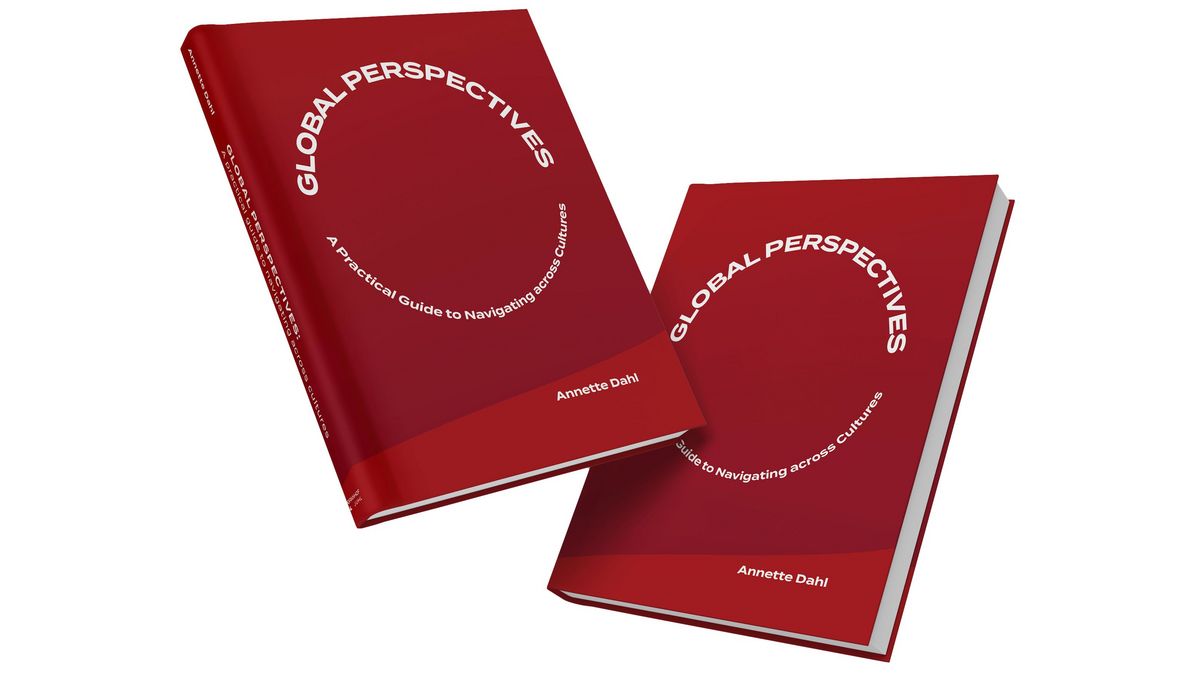
6 Tips for Working Effectively With the Dutch
In this blog post, our Netherlands country specialist, Laura Weller, presents you with 6 tips on working with the Dutch.
Growing up in Rotterdam, Laura was interested in different cultures and languages from an early age. She spent several periods abroad as a student in France, South Korea, Slovakia and Malaysia. This led her into the field of intercultural business training and consulting, facilitating sessions for multinationals around Europe with a focus on Asia.
Together with her family, she then embarked on an expat experience leading her to Russia, UK, Singapore and Sweden, all the while expanding her personal and business knowledge on working across cultures.
For one year now, Laura has been back in her native Holland, experiencing reverse culture shock and suddenly feeling like an outsider looking in.
She trains and consults on intercultural communication and collaboration, among others for C3 Consulting. She also supports us with several projects involving expat training, the C3 trainer network and our 4R Country Profiles, which are brief guides on how to navigate the work and business culture in countries across the globe, based on our popular 4R Model.
In this blog post, Laura points out several key cultural aspects of Dutch (business) culture and tips on how to work with the Dutch.
Now it's over to Laura…
1. Don't take it personally
Let's right away start with that trait that the Dutch are most famous, or actually infamous, for… Being direct to the point of blunt. It has been our advantage in our trading history as well as our pitfall.
The goal of the Dutch is, of course, not to provoke or insult but comes from the underlying values of honesty, transparency and efficiency. Why beat around the tulips when we can get to the point faster? The Danes appreciate that concept as well, but the Dutch take it to another level…
Moreover, in Dutch corporate culture, hierarchies are relatively flat compared to other countries, encouraging open communication at all levels. Employees feel empowered to express their opinions and challenge ideas, contributing to a culture of directness.
The Dutch also value constructive criticism as a means of improvement, so we don't shy away from giving or receiving feedback directly. This helps foster a culture of continuous improvement within organizations.
So, if you are working with the Dutch and sometimes feel like you are being 'hit over the head', do not take it personally. The good intention behind the direct communication is to be honest/transparent with you and help you improve your work, while not wasting your time either!
But then again, in the end… we all do take it a bit personally – we are only human! The Dutch just learn to get over it and see the benefit of having clarity. It is part of Dutch life and just the way we do things around here!
2. Be yourself, but the modest version
A famous expression in Dutch is translated as 'Act normal, you are already crazy enough' meaning be humble and don't pretend you are better than others. The Danes may recognize that from their Jante Law. We hardly boast about our achievements and need to step a bit out of our comfort zones in job interviews, as that should be the moment to toot our own horn!
In the land of windmills and wooden shoes, Calvinism didn't just shape the church – it molded the very fabric of Dutch business culture. Originating in 1540, it has instilled a strong work ethic, frugality and modesty in us, still unconsciously passed on from generation to generation.
An egalitarian structure ensures everyone is equal and all input is valued. Whether you are an intern or just joining the company, you are supposed to put in your 2 cents during any meeting.
The flat hierarchy is also visible in the management style. Empowerment based on expertise or role, not on seniority, was something the French had to get used to after the KLM-Air France merger in 2004. Sending a high-potential 27-year-old to Paris to head a joint project team or with a mandate to make decisions was initially frowned upon by the senior managers.
Modesty is also visible in the funny fact (at least according to foreigners) that the Dutch tend to have their curtains open for everyone to look in. This was exactly the original thought behind it – everyone can look in and see I have nothing fancy and luxurious that I spent my money on. I am just your average Joe… or Jan in Dutch!
To our detriment, it also applies to customer service. Sorry, the customer is not king, but just one party in this transaction.
3. Get down to business... quickly!
What are you waiting for? We are here to work. The Dutch are not so much into small talk or even the 'smallest talk' as I overheard someone say.
And wining and dining is not necessarily our thing either… at least at work.
Let's imagine you are going to South Korea to negotiate a deal with a potential local business partner. You will be picked up at the airport, invited to an indulgent kimchi BBQ fest to finish off with a soju-fueled noerebang (karaoke) evening. All to build rapport and trust. In Holland, you will have to find your own way to the hotel and what's for lunch? A cheese sandwich while we continue working… oh, and milk!
But don't mistake our seriousness for lack of humour or joie de vivre. Dutch business culture, influenced by Calvinism, has a unique charm – a blend of diligence, team spirit but also dry humour. Behind those serious faces is a love for joking around, especially about themselves and most of all, a love for creating 'gezelligheid' (a Dutch term for coziness and conviviality).
4. Plan, plan and plan
But while we are at it… do come on time! We have places to go, people to meet and targets to crush! After all, in the world of the Dutch, time is money – and we don't like to waste either.
Every meeting has an agenda, every task a deadline, and with no desire to deviate from the schedule. Efficiency is key and therefore so is the adherence to time and rules. In the end, work-life balance is important, so the thought is to be efficient at work and then have quality time with friends and family.
Talking of which, personal time is also well planned out. Italian spontaneity? Don't be surprised if your Dutch friends pull out their agenda to give you an option for drinks and dinner in two months' time… It might seem cold at first but once you eventually meet, you will have their undivided attention. Planned spontaneity!
5. Involve and engage
And maybe a paradox considering the time adherence – let's not forget the famous Dutch polder model (consensus-building decision-making process) – a metaphorical landscape where the team wades through issues, not in wooden shoes, but in well-thought-out arguments and carefully researched data.
It's a slow and deliberate process, but one that ensures everyone's voice is heard. It is said to originate from our age-old fight against the water. You are only as strong as your weakest link, so let's get everyone on board (pun intended)!
So, the next time you find yourself in a Dutch business meeting, remember to pack your patience, bring your best arguments, and remember to ask everyone what they feel about the subject in question. It might take some time, but once a decision is made, it's as solid as a block of Gouda cheese, and the Dutch proudly stick to their agreements.
6. Be proactive and speak up
Once decisions have been made, Dutch managers expect that when delegating a task or project to their team or a team member, they will pick it up and run with it. 'Should you have a question, you know where to find me!'
This assumption has got many a Dutch manager in trouble working in Southeast Asia. 'Does my boss even know what I am working on?' Employees in, say, Singapore and Malaysia expect their managers to be more hands-on and give more direction and guidance throughout the project.
The Dutch love minimum interference from superiors during task completion. They just ask for help or support when needed. And if not, then 'No news = good news'. So, if you're given a project or responsibility, know that you are trusted to complete it yourself and if you have any issues, do not hesitate to reach out to your manager or colleagues.
The mantra is speak up and speak out. If you have an idea or a concern, don't sit on it for too long. Bring it to the table, and don't be surprised if your Dutch colleagues are already three steps ahead, eager to discuss, dissect, and develop it further. Employees who aspire to a promotion are often expected to act 'one rung above' meaning to act as though they are already at the next level, as this demonstrates their suitability for promotion.
So, don't hold back; your two cents could be the missing piece of the puzzle. And no need to tiptoe around the boss; they appreciate straight talk and constructive feedback. Embrace the autonomy and show what you're made of for a round of applause and a 'Goed gedaan!' (Well done!)
A few more things to keep in mind
Remember, the descriptions provided about the Dutch (business) culture above are generalizations intended to offer an overview based on commonly observed practices and values. It's important to recognize that cultural norms and behaviours can vary among individuals and organizations within the Netherlands.
Your Dutch colleague might be raised in a bi-cultural family, completed a degree in the US or started her career in a Japanese multinational… our cultural programming is never the same. Therefore, these descriptions may not accurately represent the experiences or perspectives of ALL Dutch people or businesses.
So, when engaging with Dutch colleagues or partners, it's always advisable to approach each situation with an open mind, sensitivity and curiosity. Be like a cultural investigator and use this information as a guide and as a starting point.
Last, but not least: At C3 Consulting, we believe that all cultural understanding begins with self-understanding.
So, when you work cross-culturally, start by becoming aware of your own cultural values and everything that you consider as the 'normal' way of working. That's essential for finding the key differences between your own and other cultures, and learning how to deal with them constructively.
Next steps
Want to learn more about how to work effectively with Dutch employees, colleagues and business partners? Read about our country-specific cultural training here or contact us to hear how we can match your needs for Dutch cultural training.
The author of this blog post, Laura Weller, is one of the country specialists working to expand our database of '4R Country Profiles' – brief guides on how to navigate the work and business culture in countries across the globe, based on our popular 4R Model.
Later this year, we will launch an online learning programme that will give participants:
- Access to our growing database of 4R Country Profiles
- The skills to use our 4R Model to navigate any cross-cultural setting
Sign up for our newsletter here to get notified when our new 4R Model programme is launched.

